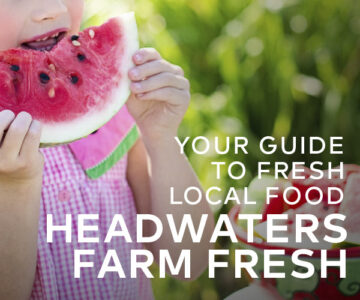Bursting bubbles, boosterisms and commoner sense
Boost “Deficit spending is already beyond belief, and the country is hugely indebted, as are households. The housing bubble has already burst. The Federal Reserve has made clear it will…
Boost
“Deficit spending is already beyond belief, and the country is hugely indebted, as are households. The housing bubble has already burst. The Federal Reserve has made clear it will reduce interest rates if the economy gets worse, but there, too, are limits. “I’m not an economist, but the only new tool I can think of to pull the United States out of the economic doldrums is a new Keynesianism, not military this time, but environmental; a push for massive investment in eco-friendly industry, in alternative energy, in the manufacture of lightweight materials for use in new vehicles; in clean, efficient public transport; in the green construction industry.” From “The Environmental Keynesian Alternative,” by Susan George, in CCPA Monitor, Dec/07-Jan/08.
Bonanza
“…a full-blown push for clean energy could unleash a jobs bonanza that would make what happened in Silicon Valley in the 1990s look like bake sale.” From “Big Problems with Big Coal,” by Jeff Goodell, in Homepower, Dec/07-Jan/08.
Bubble
“Indeed, the next bubble is already being branded. Wired magazine, returning to its roots in boosterism, put ethanol on the cover of its October 2007 issue, advising its readers to FORGET OIL; NBC had a ‘Green Week’ in November 2007, with themed shows beating away at an ecological message and Al Gore making a guest appearance on the sitcom 30 Rock. Improbably, Gore threatens to become the poster boy for the new new economy: he has joined the legendary venture capital firm Kleiner Perkins Caulfield & Byers, which assisted at the births of Amazon.com and Google, to oversee the ‘climate change solutions group,’ thus providing a massive dose of Nobel Prize-winning credibility that will be most useful when its first alternative-energy investments are taken public before a credulous mob.” From “The Next Bubble,” by Eric Janszen, in Harper’s, Feb/08.
Beware
“October. This is one of the peculiarly dangerous months to speculate in stocks in. The others are July, January, September, April, November, May, March, June, December, August, and February.” From Pudd’nhead Wilson, by Mark Twain (Harper & Brothers, 1904).
No Laughing Matter
“…farming contributes more to global warming than all the world’s cars, trains, ships and planes put together. And the single biggest problem with farming is not carbon but nitrogen. From the maize fields of Kansas to the emerald rice paddies of China, today’s bountiful harvests depend on generous applications of nitrogen fertilizer. Although only a tiny proportion escapes into the atmosphere as nitrous oxide, it is an extremely potent greenhouse gas.” From “Genes for Greens,” by Peter Aldhous, in New Scientist, Jan 5/08.
Boreal Heart
“Ontario…encompasses the heart of Canada’s boreal forest, which, along with the Amazon and the Russian Taiga, is one of the world’s three remaining frontier forests and home to billions of breeding songbirds. Ontarians are stewards to tall-grass prairie and black oak savannah, two of the world’s most endangered ecosystems. Less than one per cent of North America’s original pre-settlement old-growth eastern white pine is left today and almost two-thirds of that is in Ontario.” From “Local Matters,” by Caroline Schultz, in On Nature, Fall/07.
Waste Space
“For thousands of years, Homo Sapiens flocked across continents in pursuit of bird, beast, and fresh water, leaving behind him a trail of gnawed bones and steaming waste. The moment we stopped removing ourselves from that waste, it had to be removed from us…
“Every day, America must find a place to park five billion gallons of human waste, and our country appears increasingly unable to find the space.” From “Wasteland,” by Frederick Kaufman, in Harper’s, Feb/08.
Commoner Sense
“Today [Barry] Commoner may be best known for his Four Laws of Ecology, which first appeared in The Closing Circle [1971]. The ‘laws’ were not so much his invention as his coherent expression of the new ideas about nature that were animating the emerging environmental movement.
“The first law states that ‘everything is connected to everything else’ – the Earth’s intricate network of interacting parts is so highly balanced that disturbances in one place will have far-reaching effects.
“The second is that ‘everything must go somewhere’ – there is no ‘away’ where things can be thrown.
“Third, ‘nature knows best’ – it has been perfected over the eons and any human-made change is likely to be detrimental.
“And fourth, ‘there is no free lunch’ – that is, every solution to an environmental problem has a cost.
“If today these ecological edicts seem like common sense, that reaction is testimony to environmentalism’s success; a generation ago they were startling.” From a review by Sylvia N. Teshes of Barry Commoner and the Science of Survival, by Michael Egan (MIT Press, 2007), in American Scientist, Jan-Feb/08.
Plastic Bag Age
“They can be found at 6,000 metres on snowbound passes over the Himalayas and in the depths of the Congolese rainforest. They drift around the Southern Ocean and are piled high on the beaches of Nova Zemlaya to the north of Russia after being swept thousands of miles on the Gulf stream. But the end may now be in sight for the flimsiest of plastic bags after China pledged to ban them from June…
“At least 40 countries, states and major cities have imposed, or are considering, bans…”
“The global plastics industry, estimated to make and distribute between 500 billion and a trillion bags a year, has fought back, arguing that plastics are getting more compact and take up less space in landfills. It says paper bags require more energy to produce, generate more waste and burn less cleanly.” From “China learns from Bangladesh in banning the throw-away bag,” by John Vidal and David Stanway, in Guardian Weekly, Jan 18/08.
Soft Pop
“Patagonia was the first retailer to make fleece from recycled soft-drink bottles. It was the first major company to sell only organic cotton clothing, and the first to pledge one per cent of its annual sales to grassroots environmental organizations like the Sierra Club…
“Patagonia founder Yvon Chouinard, a maverick boss who encourages employees to go surfing and skiing whenever the wind blows and the snow flies, has proven that his outdoor apparel manufacturing company can prosper without compromising the environment. Other clothing companies brag about overnight delivery service: Patagonia admonishes mail-order customers to seriously consider whether they really need that pair of pants sent overnight. From Sierra Report, BC Chapter, Fall/07.






